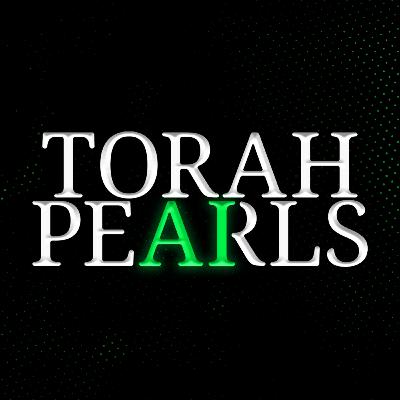Discover HOREB Institute
HOREB Institute

HOREB Institute
Author: HOREB Institute
Subscribed: 4Played: 85Subscribe
Share
© HOREB Institute
Description
Join Ross K Nichols, an author, explorer, researcher, and teacher, as he delves into the depths of the Biblical texts and their historical contexts. This podcast offers a unique blend of academic rigor and accessible insights, unpacking the complexities of the Bible's narratives, languages, and cultures. Whether you're a scholar, student, or simply curious, each episode provides a thought-provoking journey through the ancient world, shedding new light on timeless stories and teachings.
227 Episodes
Reverse
Leaving Egypt〚 Where is the LOST Sea of the Exodus 〛Pentateuch in PerspectiveThe crossing of the Red Sea is one of the most iconic moments in the Exodus story—but what if the sea’s true identity has been lost to history? The Hebrew text doesn’t actually say Red Sea, and the name Yam Suf is applied to at least three different bodies of water. So, which one—if any—is the real crossing site? How deep are these waters? And just how big would the miracle need to be? Join us as we explore the textual, geographical, and archaeological clues behind the Lost Sea of the Exodus!◉ Watch the video [HERE]
Wilderness Wonderings 〚 One Path, Two Versions 〛 Pentateuch in Perspective: BehalotechaHave you ever felt like you’ve read this before? In this week’s class, Ross explores moments in the Pentateuch that feel strangely familiar. Across Exodus, Leviticus, Numbers, and Deuteronomy, stories seem to repeat—but are they echoes, edits, or entirely new tellings? Once you begin to spot the parallels, the wilderness journey takes on new dimension. Join us as we trace variant versions of key events and ask what these narrative recurrences reveal about the texts and their authors.◉ Watch the video [HERE]
Behalotecha 〚 Lights, Layers, and Lost Passovers 〛 Torah PearlsThis week, Ross, Jono, and Ezra unpack Beha’alotecha—from the menorah of Numbers 8 to the one displayed in Jerusalem, with a stop in Zechariah 4 to briefly explore the idea of two messiahs. They trace Israel’s departure from Sinai, noting contradictions in the sources and a curious pair of inverted Hebrew nuns in Numbers 10. They examine Passovers past and forgotten, the fiery lust for meat, and the prophetic overflow to seventy elders—details that may reflect multiple versions of the same story. Moses’ father-in-law appears under different names, and Miriam is struck for her complaint about a Cushite woman. Why is Aaron spared? Along the way: silver trumpets, missing Passovers, “holy water,” and manuscript clues that challenge the canon. It’s a critical, curious, and at times comical journey through the text.◉ Watch the video [HERE]
Wilderness Wonderings 〚 Solving the Sinai Sequence 〛 Pentateuch in Perspective: NasoThe narrative sources of the Pentateuch trace Israel’s journey from Egypt to Sinai—and ultimately to the Plains of Moab. Along the way, the text provides precise dates for major events. But here’s the surprise: they’re out of order.Most readers miss it. But a careful reading reveals a scrambled sequence that begs to be reassembled.In this week’s Wilderness Wonderings, Ross walks us through eight key passages that expose the disordered timeline—and demonstrates how sorting the dates brings clarity to the chaos. What emerges is a deeper understanding of the wilderness story—and how it was stitched together.◉ Watch the video [HERE]
Wilderness Wonderings 〚 Sand in the Cradle 〛 Pentateuch in Perspective: BaMidbarBiblical Israel’s story begins not in palaces or promised lands, but in windswept wilderness. In this opening class, we explore the desert cradle where Israel is born as a people, hears the voice of its God, and begins a journey that will shape all that follows.It’s a place of rescue and rebellion, dependence and revelation—and the prophets remembered it as the beginning of everything. This is the essential epoch.◉ Watch the video [HERE]
ALTARed Texts〚 The Deity Diet: Food for Thought 〛Pentateuch in Perspective: EmorThe Bible frequently mentions altars, offerings, and sacred meals. But what role does food play in the relationship between humans and the divine? Could the ancient sacrifices be more than ritual—could they be meals for God?In this class, we’ll explore an often-overlooked thread running through the biblical texts, one that raises provocative questions about the nature of God, worship, and divine appetite. What is the theology behind sacrifices, and is it consistent throughout the Bible? Or are there competing visions—some that challenge the very idea?Join us as we set the table for a discussion that might change how you read Scripture forever.◉ Watch the video [HERE]
ALTARed Texts〚 Who’s the Neighbor You’re Supposed to Love? 〛Pentateuch in Perspective: Acharey Mot-KedoshimThis Sabbath, Ross explores the origins of what Jesus called the "second greatest commandment"—but long before it was quoted in the Gospels, it appeared in the Holiness Code of Leviticus. What does it really mean to “love your neighbor as yourself”? Who counts as a neighbor in biblical terms? Is it your friend, your fellow Israelite, or the outsider in your land? And how many laws actually govern our neighborly conduct?Join us for a thought-provoking dive into ancient texts, where loving your neighbor wasn't just a feeling—it was a detailed legal obligation.◉ Watch the video [HERE]
ALTARed Texts〚Biblical Diets: Stirring the Pot 〛Pentateuch in Perspective: SheminiFrom Eden to the end of days, the Bible is full of food—and full of food fights.In this class, we explore the sacred menus of Scripture: 🌿 Eden’s plant-based ideal 🥩 Noah’s post-flood meat allowance 🥓 Leviticus and Deuteronomy’s clean/unclean lists 🍗 Prophetic critiques of blood and flesh 🦞 Apostolic disagreements over what defiles 🍇 And New Testament claims that "all foods are clean"Some say the Bible encourages a plant-based diet. Others say it clearly endorses eating meat. Everyone seems to have a verse—and a vendetta.So who’s right? More importantly: what really matters to God?This class doesn’t just stir the pot—it tips it over. If you think your diet is the holy one, you’ll want to watch this.◉ Download the worksheet [HERE]◉ Watch the video [HERE]
What if the core of faith could be captured on a single ancient page—and expressed in just ten words? It can. In this session, we trace the quest for the original Ten Words, exploring a long-forgotten version and a remarkable rediscovery that could reshape how we understand the Bible.◉ Watch the video [HERE]
ALTARed Texts〚 Smoke and Mirrors 〛Pentateuch in Perspective: TsavDid God ever command the sacrificial system—or was it added later by a “lying pen of the scribes”? In this week's class on Torah Portion Tzav, we examine the prophetic protest against the cult: Jeremiah boldly declares that God never commanded burnt offerings or sacrifices when He brought Israel out of Egypt. What does that mean? Is it possible the entire system was not Mosaic at all?We’ll explore powerful texts from Jeremiah, Amos, Psalms, and more that seem to contradict the priestly claims in Leviticus. Could the true divine desire be mercy, justice, and faithfulness—not slaughter and smoke? This class revisits a critical controversy and offers a close, text-critical look at the tension between prophetic voices and priestly institutions.Come ready to challenge assumptions and revisit the very heart of what God really asked of Israel.◉ Watch the video [HERE]
ALTARed Texts〚 The Consecration Conundrum 〛Pentateuch in PerspectiveThis week’s class uncovers a hidden complexity in the priestly ordination story. What many assume to be a single, unified event may actually be covered by multiple authors presenting differing accounts of the same ceremony.Through close reading and side-by-side comparison, we’ll explore how the biblical texts subtly (and sometimes not-so-subtly) diverge. Could the variation point to different hands behind the narrative? Join us as we examine the clues and expose what’s often overlooked in the priestly pages of the Torah.◉ Watch the video [HERE]
Leaving Egypt〚 Spoiler Alert - Moses Didn't Write This 〛Pentateuch in PerspectiveThis week’s class explores the Torah portion Pekudey—the final chapter of Exodus—and lifts the curtain on a hidden reality behind the text and the fingerprints of a later hand. Join us as we examine narrative anachronisms and compare synoptic sections of Exodus and Numbers, using a horizontal reading method to re-order events and timelines based on the text itself. What are the clues the text gives us—and conceals? Careful readers may find that some of the most sacred stories contain... spoilers.◉ Watch the video [HERE]
Leaving Egypt 〚 The Sabbath - The Rest of the Story 〛 Pentateuch in PerspectiveThe Sabbath is a pillar of the covenant, appearing in the Ten Words—yet even there, our sources don’t entirely agree. Different laws emerge in different contexts, revealing a layered development throughout the Bible. Was Shabbat always observed as we imagine, or did its meaning evolve over time?Join me this Saturday as we examine the biblical texts that shaped and defined the Sabbath, uncovering its origins, purpose, and significance in ancient Israelite life—and for those seeking to follow God’s ways today. Let’s explore it together!◉ Watch the video [HERE]◉ Download: A Comparison of The Ten Words (Exodus and Deuteronomy) [HERE]
Leaving Egypt〚 The FOUR Stone Tablets*〛Pentateuch in PerspectiveThis week’s class on Ki Tissa explores the two distinct biblical accounts of the molten calf incident and the giving of the stone tablets. We will conduct a comparative study of Exodus 24, 32 and Deuteronomy 9, 10—examining narrative differences that reveal how these traditions developed over time.Additionally, we will highlight the little-known "Ritual Decalogue" of Exodus 34, contrasting it with the more familiar versions of the "Ten Commandments" in Exodus 20 and Deuteronomy 5. Why does the Torah present multiple accounts of this defining event? What do the variations in these texts tell us about the shaping of Israel’s laws?Using a side-by-side worksheet, this class will equip students with a powerful tool for horizontal reading—a method that helps uncover textual shifts, editorial changes, and theological agendas in the biblical narrative. Don’t miss this deep dive into one of the Torah’s most complex and misunderstood stories!◉ Watch the video [HERE]◉ Download the worksheet [HERE]
The Shapira Scroll: The First Dead Sea ScrollA groundbreaking exploration of "The Shapira Scroll: The First Dead Sea Scroll." Once dismissed as a forgery, the Shapira Scroll has lingered in the shadows of biblical archaeology, its mysteries unaccepted and its truths unexplored. On this significant date—marking both the last sighting of the scroll in 1889 and the tragic end of Moses Wilhelm Shapira’s life—we challenge the longstanding verdict of forgery.Was the Shapira Scroll genuinely the first Dead Sea Scroll, dismissed due to its unprecedented characteristics at the time of its discovery and the absence of a physical artifact today? Skepticism remains safe in the absence of tangible proof, so we delve into the evidence that calls for a reevaluation of what could be one of the most significant finds in biblical history.Tune in for a session filled with historical intrigue, challenging established narratives, and possibly rewriting the history of biblical texts. Don’t miss this chance to be part of a historic revelation.◉ Watch the video [HERE]
Leaving Egypt 〚Divine Blueprint? The Priestly Pattern & the Ark〛 Pentateuch in PerspectiveStep into the Torah portion Terumah (Exodus 25:1-27:19) with Ross K. Nichols as we uncover the Hebrew word tavnith—the “pattern” God revealed to Moses on the mount. What was this divine design, and why does it matter? At its core sits the Ark of the Covenant, the sacred centerpiece of the Tabernacle. Drawing from the Pentateuch, we’ll explore how its story began: What was it? What was it built to hold? Where was it placed? And, most crucially, what was its purpose—God’s chosen point of connection with His people, as the priestly writers reveal?◉ Watch the video [HERE]
Leaving Egypt〚 After Horeb's Day of Assembly 〛Pentateuch in PerspectiveThe Bible's Book of Deuteronomy refers to the day God spoke His Ten Words from the midst of the fire on Horeb as the "Day of the Assembly." This foundational event is described in detail in the books of Exodus and Deuteronomy. Each presents the same basic story, but each version provides different details. In this class, we explore these two versions by comparing and contrasting our sources side-by-side in a method known as horizontal study. What can we learn when we compare and contrast similar narratives within the Bible? Are there textual variants within the Hebrew Bible? Yes, and this class introduces the subject and seeks to provide a tool to benefit all who wish to study the Bible to discover the truth from our varied sources.◉ Watch the video [HERE]◉ Download the worksheet [HERE]
Leaving Egypt〚 The Decalogue Dilemma 〛Pentateuch in PerspectiveThe giving of the Decalogue is a pivotal event in the Bible, but how well do we truly understand it? This class will explore the different versions of the Ten Words, inconsistencies in the narrative, and the mistranslation of "Ten Commandments." How many commandments are actually listed? Why do the versions differ? And what does this reveal about the text’s development? Join us as we unravel the complexities of one of the most foundational yet misunderstood biblical passages.◉ Watch the video [HERE]
Leaving Egypt〚 Passover: The Forgotten Festival 〛Pentateuch in PerspectiveIntroduced as part of the Exodus narrative, Passover is commanded as an annual observance, a lasting memorial of deliverance. Yet, despite this charge, the Hebrew Bible records only a handful of observances—and even reports that it was forgotten entirely for centuries!This class examines the biblical record of Passover’s institution and its scattered observances, uncovering the story of the festival that was meant to be remembered but was seemingly abandoned. What happened to this foundational feast, and what does its absence tell us about the evolution of biblical tradition?◉ Watch the video [HERE]
Leaving Egypt〚 What is God's Name? 〛Pentateuch in Perspective
This class explores the profound question posed in Exodus 3:13, “What is His name?” and the fascinating response from God to Moses. We’ll closely examine this exchange along with the declaration in Exodus 6:2-8, where God states that the forefathers did not know Him by the name YHVH. Through critical biblical scholarship, we’ll investigate the significance of this "new name" revealed in connection with the Exodus event, how it became associated with God making a name for Himself, and what clues theophoric names in the Pentateuch might provide about when this name became known. Join us for this deep dive into one of the most pivotal revelations in the Hebrew Bible!
◉ Watch the video [HERE]








